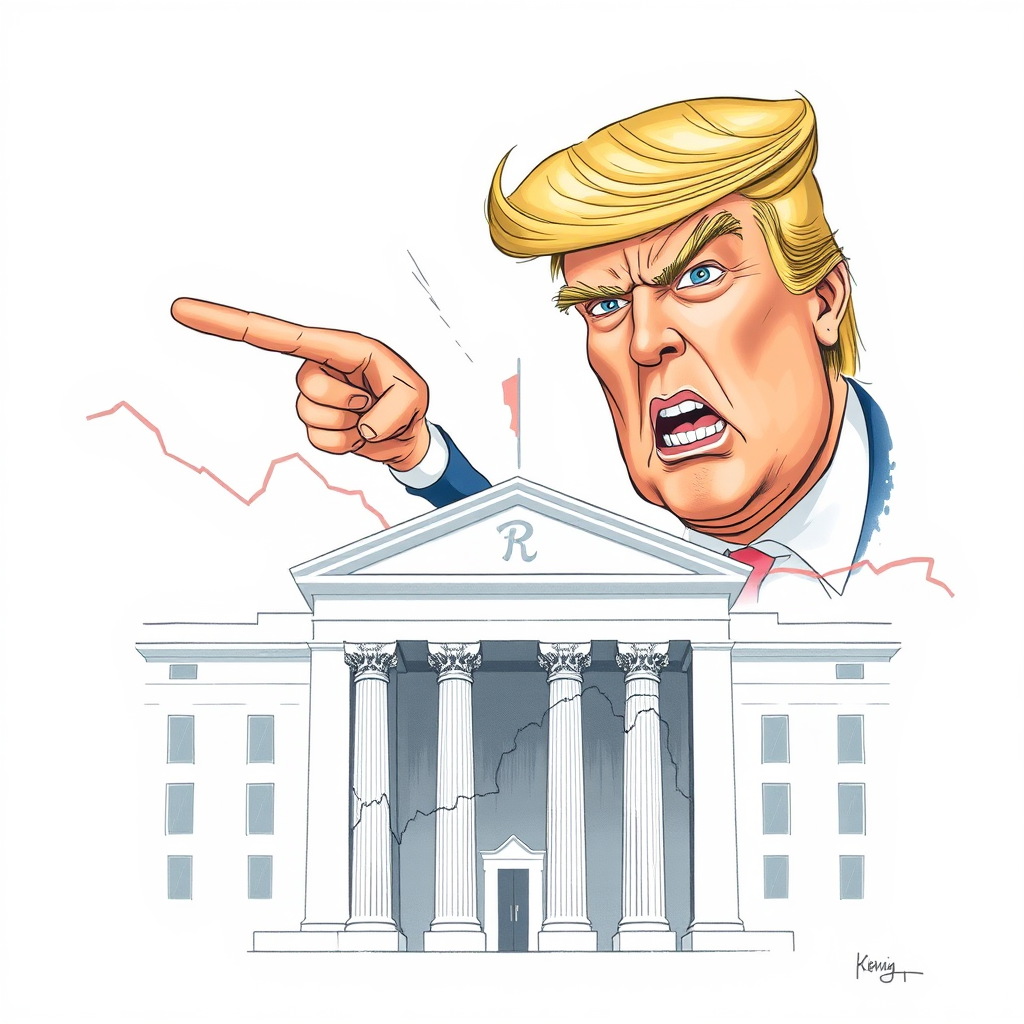Trump's Fiery Fed Attack: Powell Must Go!

Former President Donald Trump launched a scathing verbal attack on Federal Reserve Chairman Jerome Powell early Tuesday, demanding his removal and criticizing the Fed’s monetary policy. The outburst, delivered via social media, followed reports indicating the European Central Bank is likely to cut interest rates for the seventh time. Trump characterized Powell as “Too Late” and “wrong,” claiming the Fed’s recent report was a “mess.” He argued that lower interest rates, similar to those being considered by the ECB, would benefit the U.S. economy, particularly given declining oil prices and the revenue generated from tariffs.
The former president’s comments drew swift reaction from political analysts and commentators. Attorney George Conway responded with sarcasm, referencing a Supreme Court case, while legal scholar Laurence Tribe interpreted Conway’s statement as highlighting the limits of presidential power over independent agencies like the Federal Reserve.
Several outlets framed Trump’s post as an emotional outburst. MeidasTouch labeled it an “EARLY MORNING TANTRUM,” connecting it to Powell’s assessment of the negative economic impact of Trump’s tariffs. Republicans against Trump also criticized the post, noting the irony of Trump demanding rate cuts while simultaneously enacting policies likely to fuel inflation.
Writer Brian Krassenstein further explained the contradiction, pointing out that Trump’s tariffs are likely to increase inflation, making it more difficult for the Fed to justify lowering interest rates.
This isn’t the first time Trump has publicly criticized Powell and the Fed. Throughout his presidency and afterward, he has consistently advocated for lower interest rates, often blaming the Fed for hindering economic growth. The latest attack underscores a fundamental disagreement over monetary policy and the best path forward for the U.S. economy. It’s a pattern of behavior that raises concerns about the potential for political interference in an institution designed to operate independently. While presidents often express opinions on economic matters, directly calling for the removal of the Fed chair is highly unusual and potentially destabilizing. The situation highlights the delicate balance between presidential influence and the need for an independent central bank to maintain economic stability.